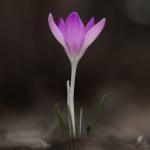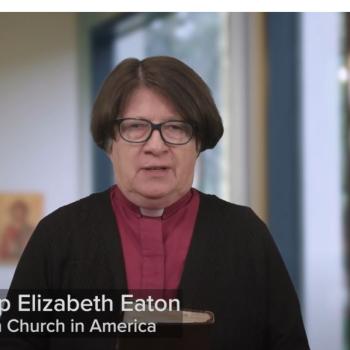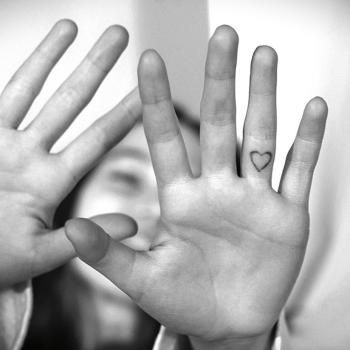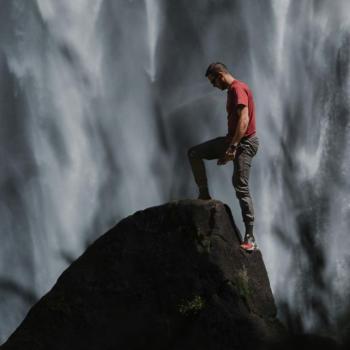I asked people in the congregation to share where they noticed God’s work in the world. Their responses were like finding water in the desert.
In Part One of this series, I noted that John’s question sent to Jesus in Matthew 11:2-11 is born out of frustration, pain, and thwarted hopes.
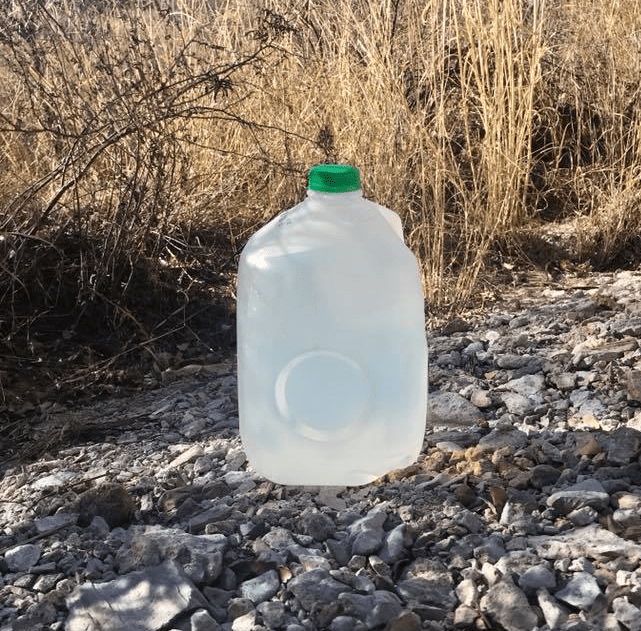
“Jesus, are you the one who is to come, or are we to wait for another?”
In other words, things are looking pretty desperate here, Jesus. Are you really the Messiah?
John’s question issues forth from our mouths as well. If you follow the news about climate change, it ain’t looking too good. If you follow the news about immigrants trying to find safety, or children held in cages, the situation is not getting better. It’s getting worse.
When things are getting worse – not better – it can make you question everything. You question your faith, your purpose in life, the goodness of humanity, and the goodness or even the existence of God.
So when Jesus quotes Isaiah 35:5-6, it’s no small thing.
“Then the eyes of the blind shall be opened, and the ears of the deaf unstopped; then the lame shall leap like a deer, and the tongue of the speechless sing for joy. For waters shall break forth in the wilderness, and streams in the desert.”
When John hears these words, he is assured: Yes, Jesus is the one! There is no need to wait for another.
In Part Two, I said that as Christians, we are to recall and repeat these words of Jesus. And our job as people of faith is to point to those signs of God’s presence and action in the world.
So, where are the crocuses blooming right now? Where is the water flowing in the desert? Where is the highway, the Holy Way, that is for God’s people?
I asked this in the congregation on Sunday, and people shared beautiful examples of where they saw God at work.
One person said they felt God’s presence when a group from the church went caroling and visiting our homebound members. It was like a flower blooming for these folks who suffer pain and isolation.
Another person said that our church’s food bank was like “water flowing in the desert.” This tiny church feeds as many as 30 people some weeks – sometimes as many as are in worship on a Sunday. For folks who are in a wilderness of poverty, hunger, and desperation, the food that the church provides is a Godsend.
Greta Thunberg and a field of crocuses
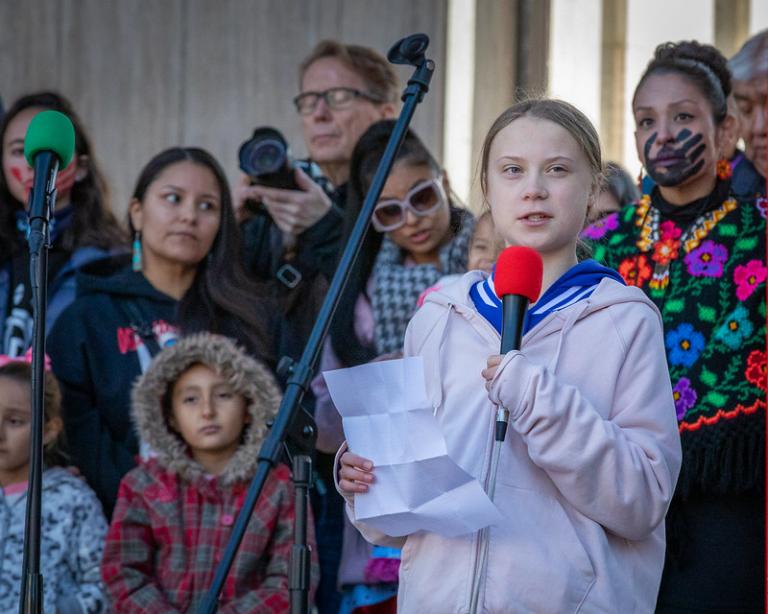
Still another person pointed to Greta Thunberg being named Time Magazine’s Person of the Year. Indeed, we saw a crocus bloom in August 2018 on the steps of the Swedish parliament. That’s when, at age 15, Greta held up a sign saying, “School strike for the climate.” That one tiny flower of prophetic witness has inspired young people around the world to organize climate strikes calling on adults to take action on global warming. Since then millions of students have mobilized in protests across the planet, like a field of blooming crocuses. Her stirring speech at the United Nations was a prophet’s call to repentance for the ecological sins we have committed against this planet and those who will inherit the mess we have left for them.
Of course, Greta is also vilified by many, including the presidents of Brazil and the United States.
They mock her, attack her, and ridicule her. That’s what happens when, like John the Baptist, prophets speak truth to power. But just as people listened to John, people are listening to Greta’s message. World leaders are paying attention. She is cutting through the hubbub of noise, distraction, and lies, and telling the truth without apology.
“The wilderness and the dry land shall be glad, the desert shall rejoice and blossom; like the crocus it shall blossom abundantly, and rejoice with joy and singing. . . The tongue of the speechless sing for joy. For waters shall break forth in the wilderness, and streams in the desert.”
Where else do we see waters in the desert, streams breaking forth in the wilderness?
Men and women trekking through the desert border between the United States and Mexico sometimes see water in the wilderness. It comes in the form of water jugs placed along the routes where immigrants cross seeking refuge. Temperatures in the desert can reach 120 degrees in summer and fall below freezing in winter. The families who walk through these dangerous places suffer from hunger, dehydration, blistered and bloody feet, and exhaustion. Many of them leave their countries of origin with nothing but the clothes on their back, fleeing from violence and destitution. They walk for weeks hoping to seek asylum and safety for themselves and their children.
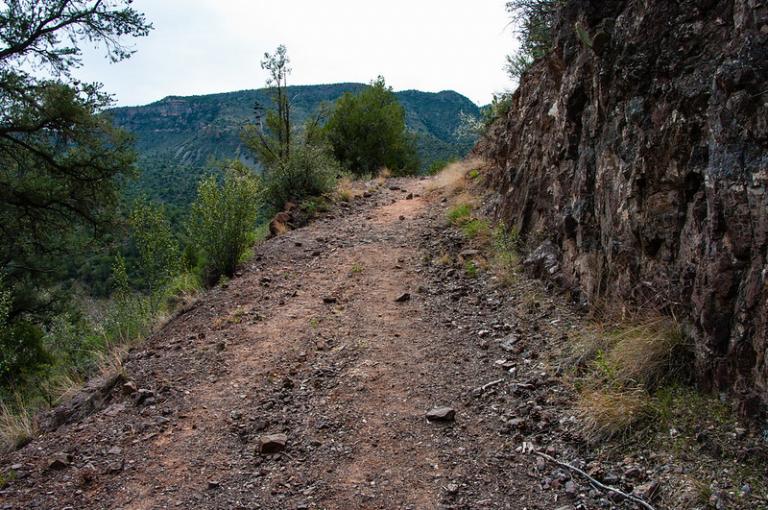
When they find that precious water in the desert and food left for them in these wilderness places, they are grateful beyond measure.
But some of the volunteers who provide these life-saving supplies are arrested. Their crime? Placing water in a federally protected wilderness area. No matter that they are providing humanitarian aid. No matter that they are being Good Samaritans, as Jesus calls us to do. Like John the Baptist, and like Jesus himself, they are arrested and put on trial for what? Compassion. Caring for desperate people. And for revealing how corrupt and inhumane we have become.
Nevertheless, their prophetic witness has led to protest vigils across the country. People are listening to their message that 7,000 deaths over the past two decades is unconscionable. More and more volunteers are risking arrest to place water and food for the refugees in these wilderness places.
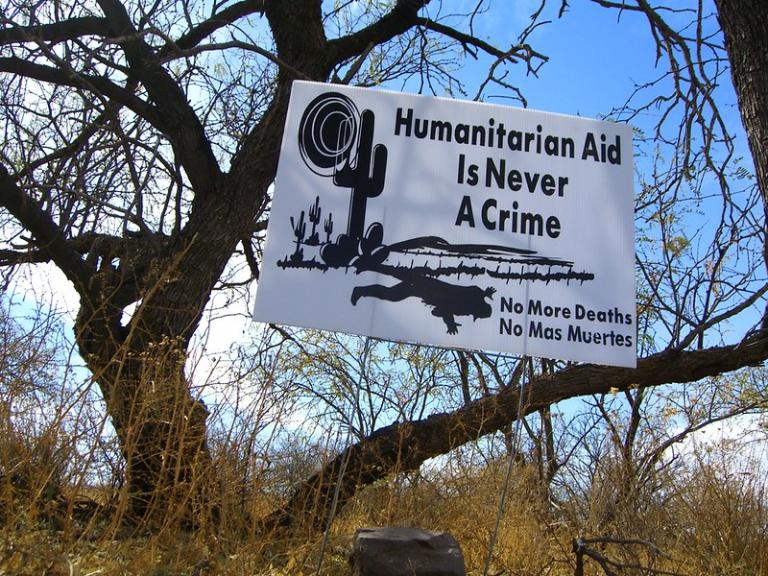
“The burning sand shall become a pool, and the thirsty ground springs of water . . . A highway shall be there, and it shall be called the Holy Way; the unclean shall not travel on it, but it shall be for God’s people.”
Where have we seen this Holy Way?
This past week we saw doctors lay down on the road in front of the Customs and Border Patrol headquarters in San Diego. Why did they use their bodies to block to road? They were peacefully protesting the refusal of federal authorities to provide flu shots to the immigrant children being detained.
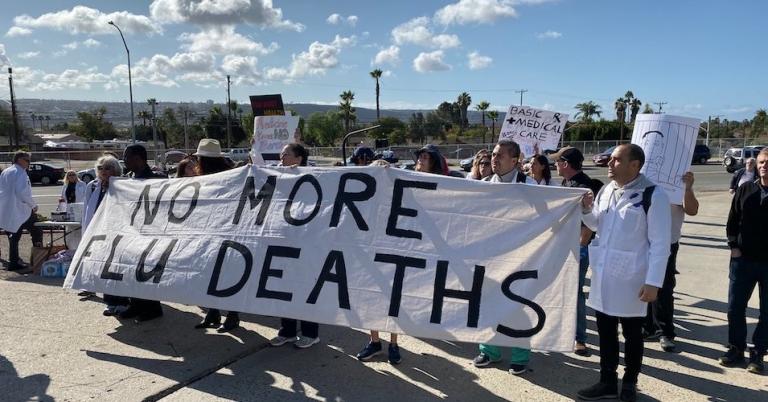
Some of the physicians were, of course, arrested. It did not matter that they believed it was their duty to stop people from needlessly suffering and dying. No matter that they were following their oath to “First, do no harm.” Their hands were zip-tied and they were detained for their civil disobedience.
Nevertheless, their prophetic witness is raising awareness about the conditions of these detention centers. Over the past year, at least three children died of influenza while in federal custody, including 16-year-old Carlos Gregorio Hernandez Vasquez. He was left lying on the floor in a holding cell for hours after falling sick before he was found dead.
So that road where those doctors lay their bodies down for the sake of the children became a Holy Way.
“The unclean shall not travel on it, but it shall be for God’s people; no traveler, not even fools, shall go astray. No lion shall be there, nor shall any ravenous beast come up on it; they shall not be found there, but the redeemed shall walk there.”
Greta Thunberg. Volunteers placing water in the desert. Doctors protesting the deaths of children. These are just a few examples of crocuses blooming in the wilderness. Water flowing in the desert. The Holy Way suddenly appearing for God’s people.
And for the folks in the congregation, they saw their own church as a flower in the wilderness, a stream in the desert.
It’s a place where friendship, support, and love blooms even in the harshest conditions. A place where sustenance is offered for their neighbors, and for themselves every Sunday when they come for Holy Communion. Their church is a Holy Way where they encounter the Word of God, where they and their children and grandchildren learn the Bible and build their faith.
“Jesus, are you the one who is to come, or are we to wait for another?”
“Go and tell John what you hear and see: the blind receive their sight, the lame walk, the lepers are cleansed, the deaf hear, the dead are raised, and the poor have good news brought to them. And blessed is anyone who takes no offense at me.”
Hear the crocuses preaching. Hear the water jugs singing. Listen for the stones crying out on the road:
“Strengthen the weak hands, and make firm the feeble knees. Say to those who are of a fearful heart:
“Be strong, do not fear! Here is your God!”
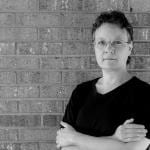
Leah D. Schade is the Assistant Professor of Preaching and Worship at Lexington Theological Seminary in Kentucky. She is the author of Preaching in the Purple Zone: Ministry in the Red-Blue Divide (Rowman & Littlefield, 2019), Rooted and Rising: Voices of Courage in a Time of Climate Crisis (Rowman & Littlefield, 2019), and Creation-Crisis Preaching: Ecology, Theology, and the Pulpit (Chalice Press, 2015).
Twitter: @LeahSchade
Facebook: https://www.facebook.com/LeahDSchade/
Read also:
Jesus, Are You the One? Matthew 11:3
Flowers Preaching in the Desert – Isaiah 35:1-10
You Brood of Vipers! John the Baptist Gives Us Permission Not to Be Nice


